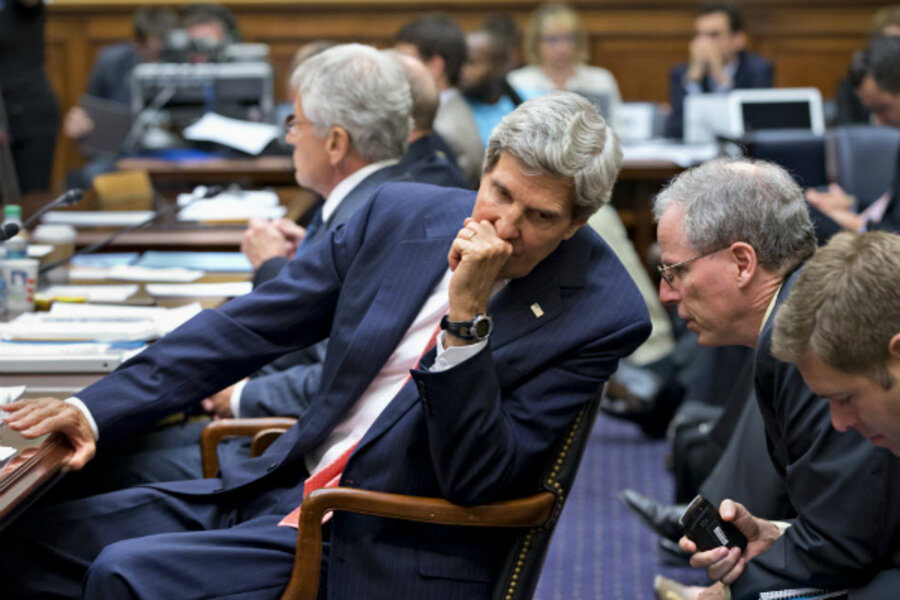Obama describes his strategy as a "shot across the bow" to "deter and degrade" the ability of Syria's Mr. Assad to use chemical weapons. In testimony before House and Senate panels on Sept. 3 and 4, Secretary Kerry, Defense Secretary Hagel, and Gen. Martin Dempsey, chairman of the Joint Chiefs of Staff, made it clear that the president is not asking the nation to go to war or to assume responsibility for the Syrian civil war. And, most emphatically: No American boots on the ground.
But many Americans and members of Congress are wary that what starts as a limited "shot across the bow" could wind up as a full-blown war, requiring boots on the ground, as events spin out of control.
Americans want assurances that Syria will not be the next Afghanistan or Iraq. But asked to commit to a strictly limited operation, Kerry, Secretary Hagel, and General Dempsey hedged answers to questions about how "limited" a US military campaign in Syria must be.
Asked at the Sept. 3 Senate hearing whether the Obama administration could accept a proposed congressional resolution that explicitly prohibited American "boots on the ground" in Syria, Kerry said, "it would be preferable not to." That option might be needed "in the event Syria imploded" or to prevent Syria's chemical weapons from falling into the hands of terrorist groups, he explained.
“I don’t want to take off the table an option that might or might not be available to the president of the United States to secure our country," he added.
Responding to the same question, Dempsey said: "Well, it won't surprise you to know that, as the military leader responsible for this, the broader the resolution, the less limiting, the better off I will be in crafting a set of options."
Asked how confident he was that the US can "calibrate" military action to keep to the limited goal of "degrading and deterring" the Assad regime, Dempsey said: "Well, we can calibrate it on our side. There is always the risk of escalation on the other."
While only one-third of Americans believe airstrikes against Syria are likely to be effective in discouraging the use of chemical weapons, 61 percent expect that airstrikes will lead to a "long-term military commitment there," according to the Pew Research poll.
“I don’t think there are any of us here that are willing to support the possibility of having combat boots on the ground,” said Sen. Bob Corker (R) of Tennessee, the top Republican on the Senate Foreign Relations Committee.
In the end, the foreign relations panel added a limitation to the Senate version of the use of force resolution that specifies that US armed forces are not authorized to be used on the ground in Syria "for the purpose of combat operations."
“No one wants American boots on the ground. Nor will there be American boots on the ground, because there would be an impeachment of the president if they did that,” Sen. John McCain (R) of Arizona told a Phoenix radio station on Sept. 5.








